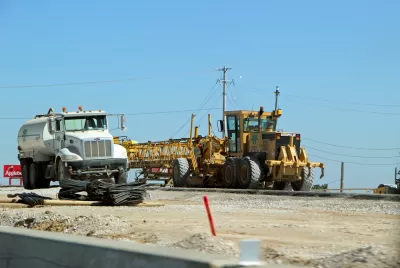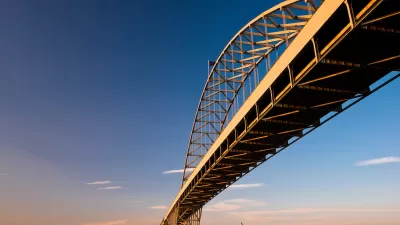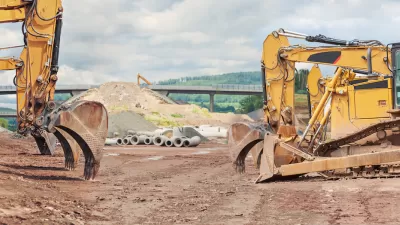Senators McConnell and Capito reject the administration's efforts to steer federal funds to infrastructure projects that prioritize road maintenance and transit and pedestrian improvements over new road construction.

As reported in an article by Daniel C. Vock for Route Fifty, Senate Majority Leader Mitch McConnell and U.S. Sen. Shelley Moore Capito of West Virginia are advising state governors to ignore the recommendations issued by the Federal Highway Administration in a December memo. These recommendations promote "projects that promise to reduce carbon emissions, expand transit, add bike lanes and incorporate stakeholders like local governments" and encourage making improvements to existing roads instead of building new ones in an effort to limit the expansion of highways and shift focus to infrastructure that benefits pedestrian, cyclists, and transit users as well as drivers.
According to McConnell and Capito, "'Congress never envisioned the [infrastructure law] to be a 'unique opportunity' for FHWA to ‘evolve the century-old relationship with state departments of transportation' as the FHWA memorandum suggests.'" The senators claim the law does not give FHWA any added authority to dictate how funds are used or which projects are prioritized.
As Vock writes, "The missive is the latest in a wave of criticism, especially among Republicans, about the Biden administration’s attempts to steer money that, by law, goes to state governments with very few strings attached." The attempt to steer "formula" funds to specific types of projects is "unusual," says Vock, as administrations usually do this through discretionary and competitive grant programs.
FULL STORY: McConnell Tells Governors They Can Ignore Biden Highway Priorities

Trump Administration Could Effectively End Housing Voucher Program
Federal officials are eyeing major cuts to the Section 8 program that helps millions of low-income households pay rent.

Planetizen Federal Action Tracker
A weekly monitor of how Trump’s orders and actions are impacting planners and planning in America.

Ken Jennings Launches Transit Web Series
The Jeopardy champ wants you to ride public transit.

Washington Legislature Passes Rent Increase Cap
A bill that caps rent increases at 7 percent plus inflation is headed to the governor’s desk.

From Planning to Action: How LA County Is Rethinking Climate Resilience
Chief Sustainability Officer Rita Kampalath outlines the County’s shift from planning to implementation in its climate resilience efforts, emphasizing cross-departmental coordination, updated recovery strategies, and the need for flexible funding.

New Mexico Aging Department Commits to Helping Seniors Age ‘In Place’ and ‘Autonomously’ in New Draft Plan
As New Mexico’s population of seniors continues to grow, the state’s aging department is proposing expanded initiatives to help seniors maintain their autonomy while also supporting family caregivers.
Urban Design for Planners 1: Software Tools
This six-course series explores essential urban design concepts using open source software and equips planners with the tools they need to participate fully in the urban design process.
Planning for Universal Design
Learn the tools for implementing Universal Design in planning regulations.
Heyer Gruel & Associates PA
Ada County Highway District
Institute for Housing and Urban Development Studies (IHS)
City of Grandview
Harvard GSD Executive Education
Toledo-Lucas County Plan Commissions
Salt Lake City
NYU Wagner Graduate School of Public Service





























